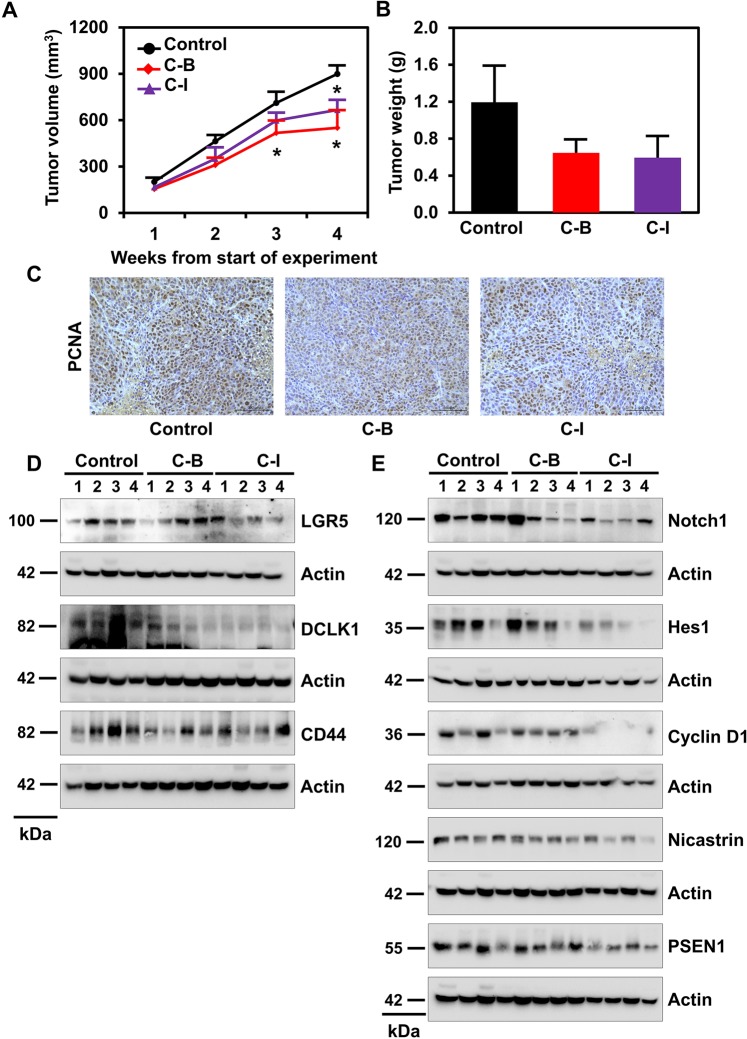Figure 7.
Cucurbitacin B and I inhibits colon cancer xenograft growth in mice. (A) HCT116 cells (1 × 106) were injected into the flanks of nude mice and palpable tumors were allowed to develop for 7 days. Subsequently, C-B and C-I (1 mg/kg BW) were injected daily intraperitoneally every day for 21 days. On day 22, tumors were excised and subject to further analyses. C-B and C-I treatment resulted in significantly lower tumor volume when compared to control. Tumor volume was measured every week. There was a significant reduction in tumor volume from C-B and C-I treated animals when compared control (*p < 0.01). (B) Tumor weights in C-B and C-I treated mice were smaller when compared to control. (C) Immunohistochemistry analysis of C-B and C-I treated tumors show a lower number of PCNA-positive nuclei than control tumors in nude mice carrying xenograft tumors of HCT116 cells. (D) Western blot analyses of tissue lysates from C-B and C-I treated animals show significantly lower levels of cancer stem cell protein markers DCLK1, LGR5 and CD44. (E) Western blot analyses of tissue lysates from C-B and C-I treated animals show significantly lower levels of Notch signaling pathway protein Notch-1, Hes-1, Nicastrin, Presnelin 1 and Cyclin D1.

